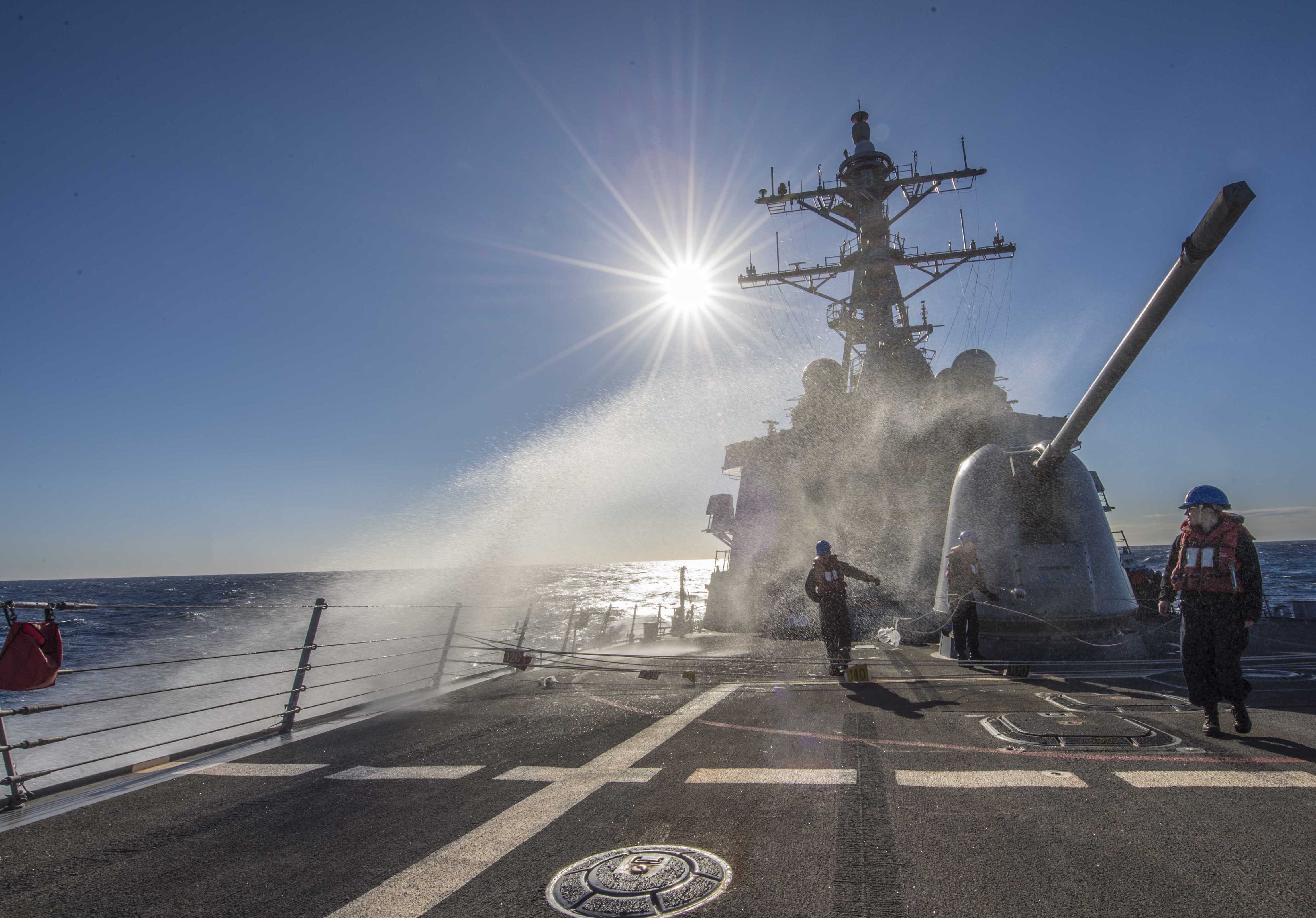
Two top Senate Armed Services Committee Republicans have introduced legislation that covers a wide swath of Navy-suggested reforms for the surface forces.
Introduced by Sen. Roger Wicker (R-Miss.) and co-sponsor SASC chariman Sen. John McCain (R-Ariz.), the Surface Warfare Enhancement Act of 2018 builds off the conclusions of the Navy’s Comprehensive Review of Recent Surface Force Incidents and the Navy Secretary’s Richard V. Spencer Strategic Readiness Review following the fatal collisions of guided-missile destroyers USS Fitzgerald (DDG-62) and USS John S. McCain (DDG-56) in 2017 that killed a total of 17 sailors.

“Our commanders and sailors have been calling for meaningful reform,” Wicker, the SASC seapower subcommittee chairman, said in a statement.
“Overextended and undermanned ships, overworked crews, fewer officers with naval mastery, and confusing chains of command have contributed to a decline in our naval power. My legislation – based on the Navy’s own recommendations – is specifically designed to address these and other challenges. Although I have confidence in the Navy’s leadership, I believe Congress needs to play an active role in helping them to succeed in this endeavor.”
The bill addresses a laundry list of issues that created the conditions that led to the collisions. Those include unfettered requests for naval power from combatant commanders, lack of clear command structure for the surface force, an especially high operational tempo in forward-deployed forces and surface warfare officers aboard that have less time driving ships than previous generations.
The almost 20 provisions include a complete review of the Navy’s command and control structure, requiring surface sailors to keep a log book of their bridge time, a change to the so-called up-and-out rules that would keep experienced mid-level officers in the service longer, and the authority for a service chief to delay the start of a deployment if the ship or strike group cannot prove it is ready.
Other provisions include providing an unclassified annual report of the Navy’s the Board of Inspection and Survey (INSURV). The Navy, following an embarrassing string of unsatisfactory results in 2008, classified the reports.
Some on the House side have also called for declassifying INSURVs.
“During peacetime, INSURVs should be declassified, and that makes sure there’s transparency there that we know what’s going on,” House Armed Services seapower and projection forces subcommittee chairman Rep Wittman (R-Va.) said earlier this year.
“That creates, again, that direction, that focus to make sure that maintenance is being done, maintenance availabilities aren’t being missed, material readiness is being maintained. All those things are critical.”
While the bill is specific about some provisions, like giving aspiring surface warfare officers time underway on six Navy Yard Patrol Craft (YPs) at the Surface Officer School Basic Division Officer Course, it’s vaguer on other suggestions like command and control.
Some in the House are keen on stripping the responsibility for manning, training and equipping ships in the Pacific from local commands and consolidating that authority to a fleet-wide central point on the East Coast. However, Wicker and McCain’s bill doesn’t take the so-called Inouye Amendment head on and instead calls for a complete command and control review from the Secretary of the Navy.
When reached by USNI News on Monday, a Navy spokeswoman declined to comment on the legislation.

Regardless of the process for the reforms, McCain said Monday, “the status quo is unacceptable.”
“As we have seen too often in recent months, the significant shortcomings in our Navy’s readiness can have disastrous results,” McCain said in a statement.
“The ship collisions… degraded the capabilities of our fleet, cost hundreds of millions of taxpayer dollars, and – most importantly – took precious lives. The status quo is unacceptable. Congress must provide the funding and oversight required to keep our military safe in peace and effective in combat.”





